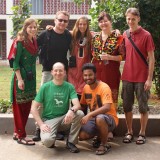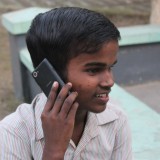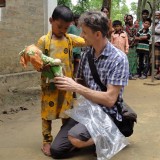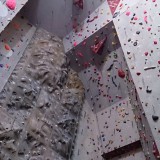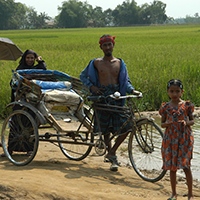It is the property of excellent natures to minister and do good
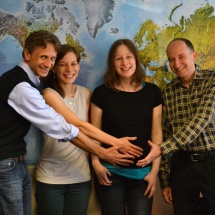
A great boss, a sensitive person, a sidekick in good times and bad - Kamil Kreutziger, director of the BanglaKids program, is all this and much more. To achieve his goals, he’ll stop at nothing to overcome obstacles. His secret weapons when troubleshooting? His kindness and sense of humor. Kamil has been working at ADRA for 3 years now, and the time has finally come to introduce him to you and ask him about our recent trip to Bangladesh.
Kamil, could you tell us a little about yourself?
Myself?... Well, I love people, children, mountains, traveling, meeting people, and I’m fascinated by teamwork. I also love potato pancakes and my beloved wife Anka.
How did you come to work for the ADRA NGO?
It was thanks to those potato pancakes (smile). Once we invited our friend Radek Špinka over for potato pancakes. At that time, I was out of work and was thinking hard about which direction I wanted to go in my life. Well, two days later, thanks to him, ADRA contacted me.
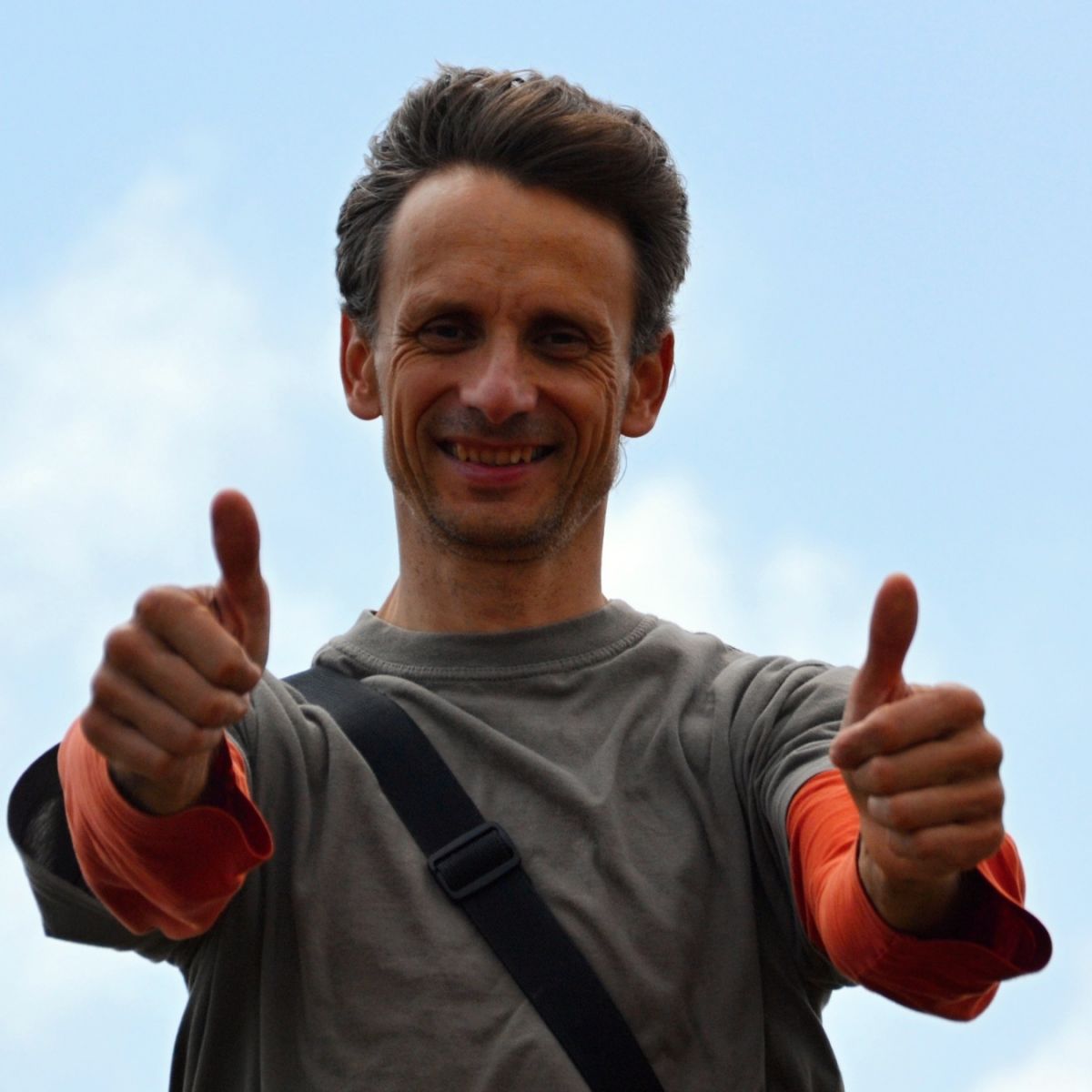
When we make great things happen together. I enjoy working in a team.
You work part-time as the program director for BanglaKids. What do you do with the rest of your time?
I coordinate the activities of ADRA’s 11 volunteer centers in the Czech Republic. They assist hospital patients, senior citizens, children in orphanages, disabled people, and other people through the kind service of our volunteers. Last year we had 1,832 of them.
And do you have any free time?
Yes, at night (smile). I sleep and study. I’m interested in the exegesis of sacred Hebrew texts. I’m fascinated by the depth of their thoughts and their literary beauty.
Kamil, right now we’re sitting in an airplane over Iraq, heading for Bangladesh. You for the third time, and for the rest of us for the first time. What are you looking forward to the most?
I’m looking forward to seeing our boy Ronjon, then Anka’s little girl Omeika - I’m taking her a doll named Julia. Then I’m looking forward to all the surprises that await our team. And of course to the children, people, co-workers, bananas, and also fish. :-)
Six of us are flying to Bangladesh today. Each of us is a different chemical compound and now we’re all in one beaker together, so I’m curious what kind of cocktail will be created. :-) Instead of an inscription reading Coca-Cola, this one has Bangladesh written on it. Maybe it’ll explode, or maybe it’ll be the best drink anyone ever had. :-)
-----
Two months later, and we’re back in the Prague office of BanglaKids. So what came out of our team chemistry in Bangladesh?
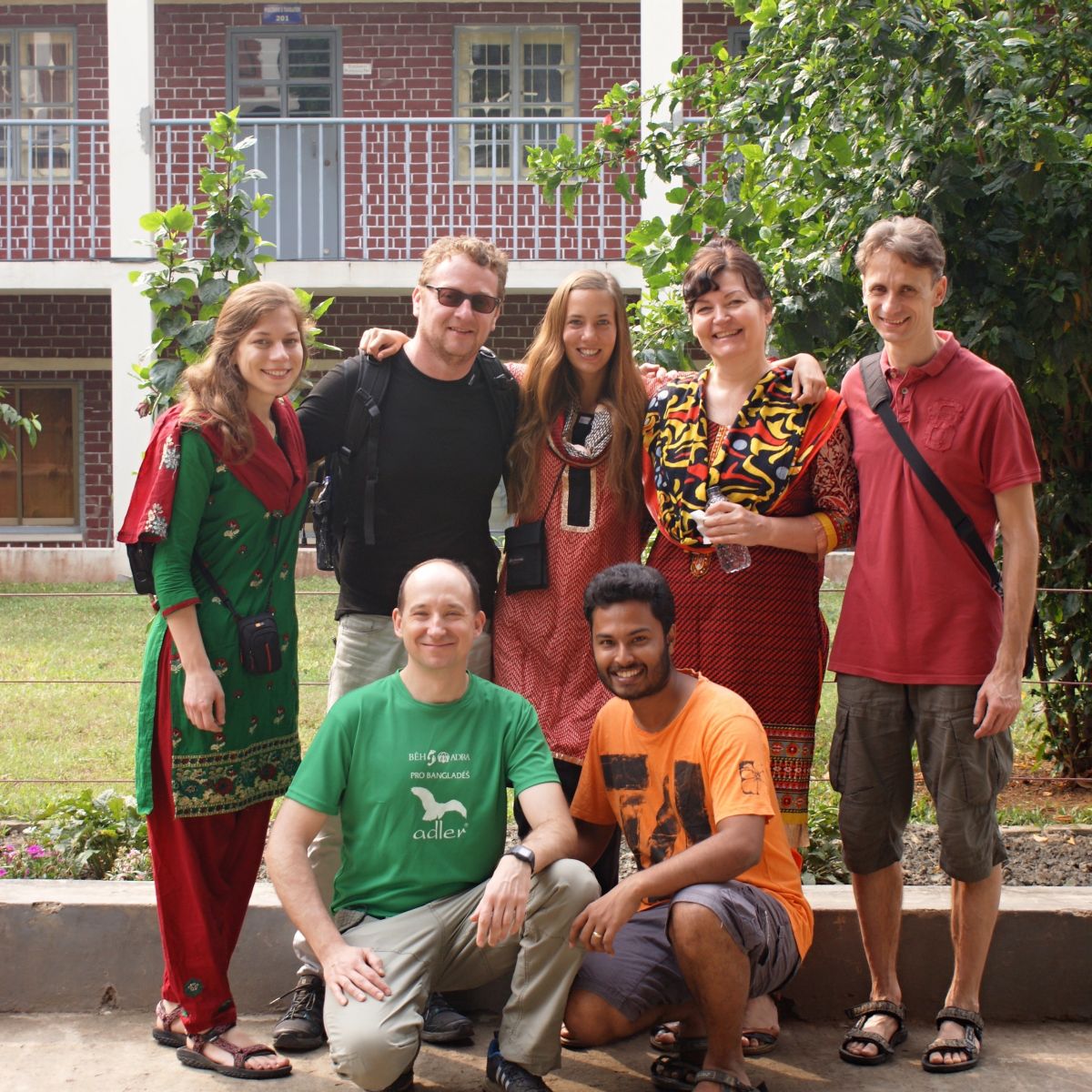 I think it made a great cocktail. The trip was difficult but fun; we experienced many interesting moments together, and all the members of the team showed tremendous resilience. Now we’re more like friends than colleagues. I have the feeling that we reached a new dimension of cooperation, which is great - I hope we can maintain it and develop it further. Both of our sponsors were fantastic, as was our photographer. When they went back home after two weeks, we were sad. So the team chemistry was fantastic from all points of view! ;-)
I think it made a great cocktail. The trip was difficult but fun; we experienced many interesting moments together, and all the members of the team showed tremendous resilience. Now we’re more like friends than colleagues. I have the feeling that we reached a new dimension of cooperation, which is great - I hope we can maintain it and develop it further. Both of our sponsors were fantastic, as was our photographer. When they went back home after two weeks, we were sad. So the team chemistry was fantastic from all points of view! ;-)
And why exactly do we go to Bangladesh?
They have good bananas there (smile). Many things can’t be organized by email or telephone. Regular personal contact with our colleagues is absolutely necessary for our work, and it’s very effective. During days of meetings and travel, we can take care of many things. One part of our monitoring trips is regular visits to schools, where we check the education process, accounting, and have regular meetings with children and teachers. This year, over the course of 4 weeks, we visited 25 schools and travelled about 3,000 km.
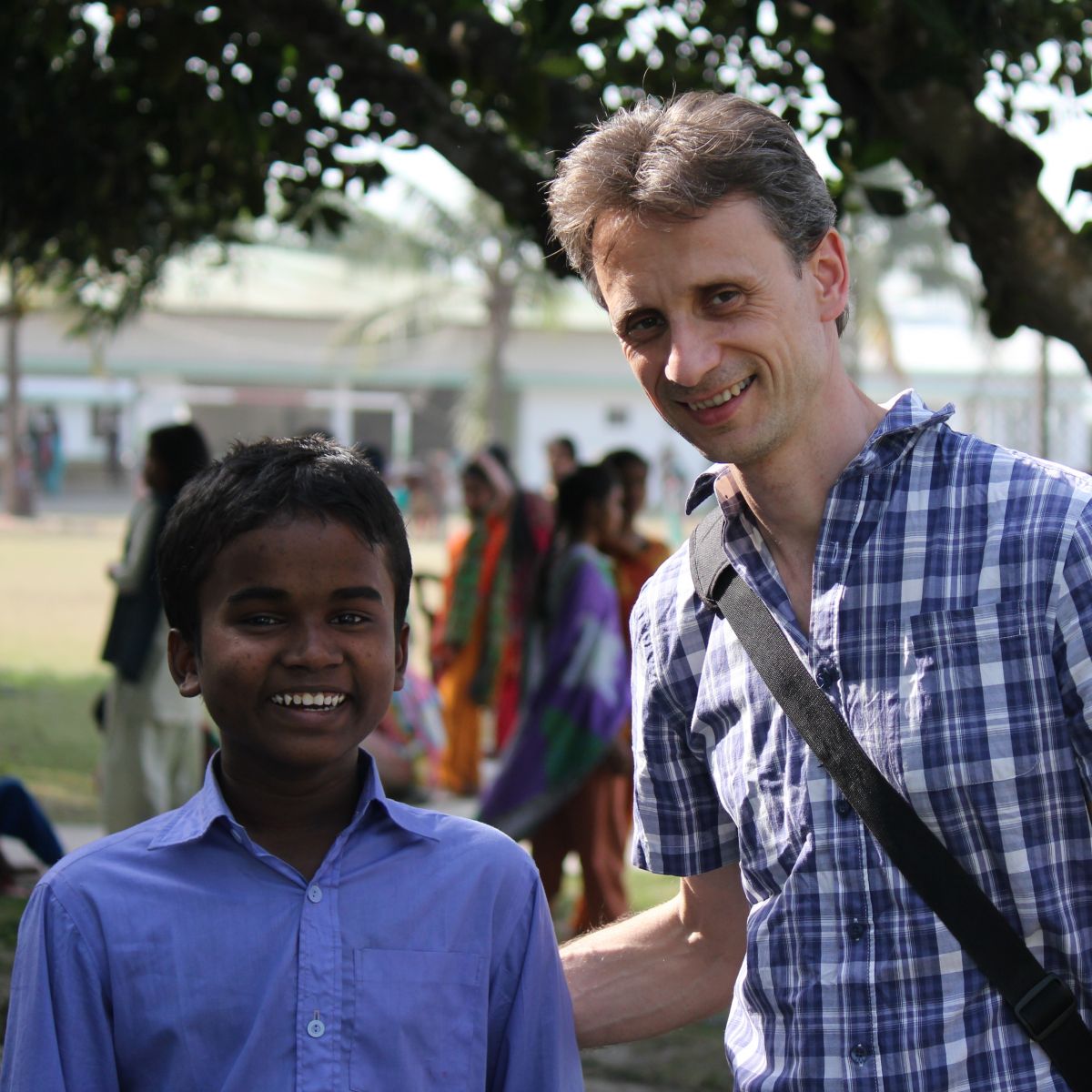 What was it like meeting Ronjon for the third time?
What was it like meeting Ronjon for the third time?
Wonderful - he’s growing! Two years ago, he didn’t speak any English - now we can actually talk to each other. He wants to be a singer and help poor people in Bangladesh. He told me that with that kind of childlike sincerity, purity, and steadfastness. For the first time we were able to call his “mother” in the Czech Republic - my wife. Ronjon is truly an orphan. It seems like he was drawn to her - he enjoyed the conversation. I hope one day we can all meet together.
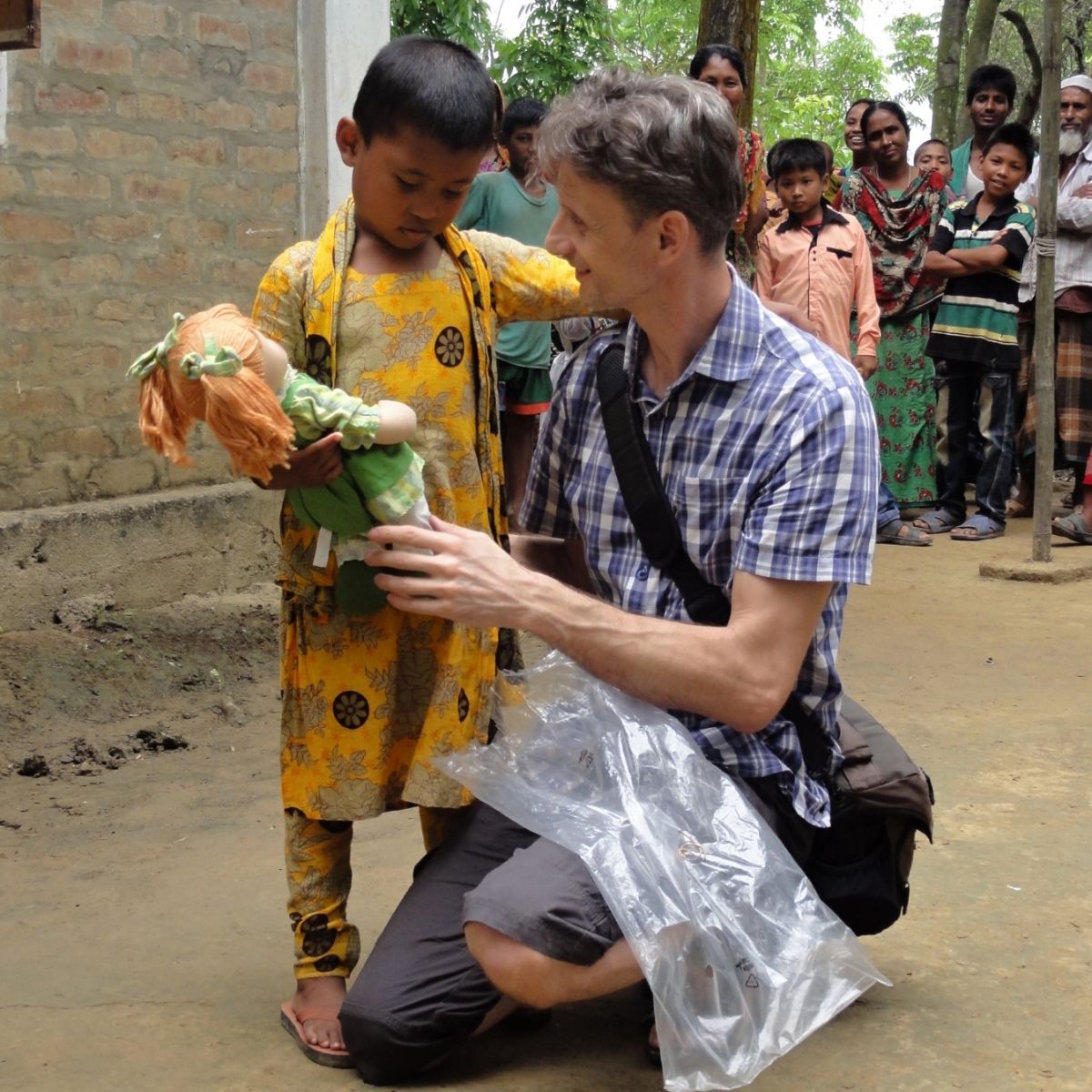 And your meeting with Omeia? Were you able to give her Julia the doll?
And your meeting with Omeia? Were you able to give her Julia the doll?
Omeia is still too little. I gave her the doll, but we didn’t really have a conversation. I met her grandmother and grandfather, and we’d love to keep supporting her.
During our trip we met and spoke with many locals. Who or what moments touched you the most?
Sabina. A young, around 23-year-old mother of 3, the oldest of whom is her 10-year-old daughter Trishna. She was immensely grateful that her children have the opportunity to go to our schools. She told us that getting married at age 12 was stupid. When we asked her if Trishna would get married that early as well, she vehemently stated: “Absolutely not!”
On these trips, I’m always affected by the encounters with beggars, blind people, poor people, people who are missing limbs and crawling on the ground. And the street children. These meetings affect me deeply, leaving me with a feeling of helplessness. It would be my greatest wish to see a world without beggars, where everyone was attentive and merciful, so that nobody would need to beg. Without our Czech donors, many children would end up like them.
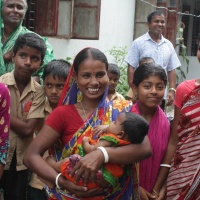 I noticed that the people in the villages consider you to be a holy white man. Did you notice it as well?
I noticed that the people in the villages consider you to be a holy white man. Did you notice it as well?
White I am, holy I am definitely not. :-) I like people, and here the affection is clearly mutual.
I know what it is - you’re tall and thin, with captivating eyes that shine with goodness and the willingness to give. They thought you could heal their sick children...
The perceptions of the villagers are varied. My job is to show them the reality of their situation and not give them false expectations. I do whatever I can, but I’m neither a doctor nor God.
You’re an intrepid traveller. When we were in Dhaka at a busy market, our guide urged us to move along quickly for safety reasons, but you wanted to take pictures, record video, and speak with people...
Honza, I think you’re exaggerating. Risk awareness is important. Openness towards people can overcome some prejudices and the meeting of cultures is rewarding. Nonetheless, when it’s time to go, you need to go. It can take just a minute for a situation to turn bad. We were in Africa once and had to fight with bare hands after sunset - I wouldn’t want to do that again. And then it’s about the whole team.
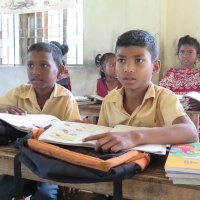 As BanglaKids’ director, which direction do you want to take the program?
As BanglaKids’ director, which direction do you want to take the program?
This is the work of the entire team. We want to focus on high quality, comprehensive education for the children in order for them to become people who are not only educated, but also clever, with their hearts in the right places, and who will contribute to the development of their beautiful country. Bangladesh’s potential lies in its people.
Is there anything you’d like to say to our donors?
I would like to thank them for their generosity. Without them, our support for children in Bangladesh could not exist. John Amos Comenius once said: “To whomsoever you can do good, rejoice to do it, even though it were to the whole world. It has justly been stated that it is the property of excellent natures to minister and do good.” I’m glad that we have more than 800 of these “excellent natures” in the BanglaKids program.
Thank you for the interview.
